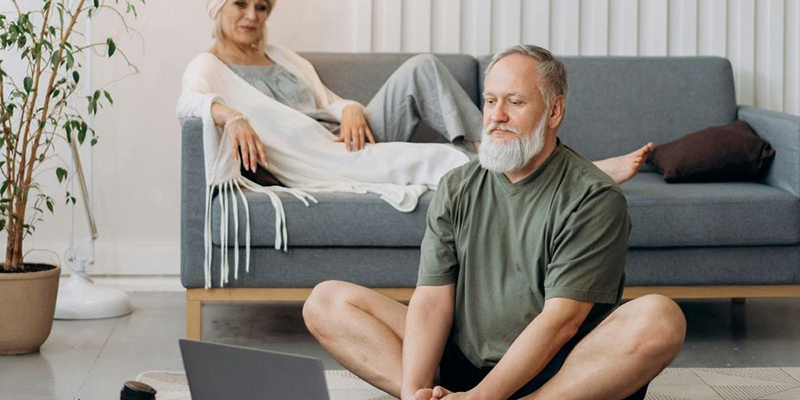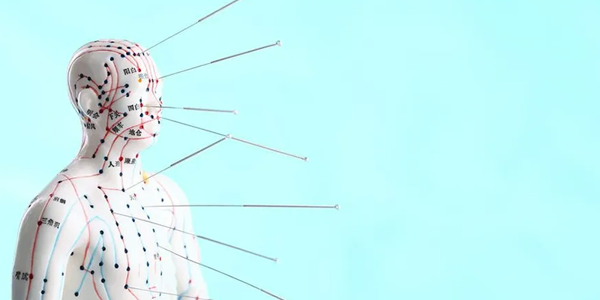Holistic Health Approaches For Seniors
With the passing years, people have learned about health in a very restricted manner- medications, check-ups, and chronic illnesses. But what if something more refreshing to our health exists in our later years? That is where holistic health comes in. A philosophy that considers the body, mind, emotions, and spirit for healing proposes that achieving longevity isn't solely about striving to add more years into life but instead to add life into those years.
With the passing years, people have learned about health in a very restricted manner- medications, check-ups, and chronic illnesses. But what if something more refreshing to our health exists in our later years? That is where holistic health comes in. A philosophy that considers the body, mind, emotions, and spirit for healing proposes that achieving longevity isn't solely about striving to add more years into life but instead to add life into those years.

So, let's take a closer look at what holistic health means for older adults, how it contrasts with conventional medical approaches, and why it is becoming increasingly popular to foster resilience, joy, and vitality in older age.
How Can Holistic Health Be Beneficial For Seniors?
While getting older, many changes occur, such as low metabolism, limited movement, and changes in social relations. While there are benefits factors of modern medicine that assist with acute issues like infections (where antibiotics serve as a remedy) and surgeries (like joint replacements), when it comes to the ageing population, the existing treatment strategies are anything but ineffective. Diabetes, arthritis, heart disease, and a multitude of other chronic conditions are not just physical problems but are also affected by an individual's diet, level of Stress, feeling of isolation, and, most importantly, the feeling of having a purpose.
That is where holistic health brings the most value—it does not just focus on symptoms; it looks to support the entire person. The National Institute on Aging found that seniors who practice multifaceted wellness techniques like mindful movement or eating socially dense diets tend to have clearer minds, more emotional balance, and even better physical stamina.
Holistic Health For Seniors
1. Loving Your Body Back Through Movement
Physical activity is not about looking fit but feeling happy and more independent. Gentle exercises, such as tai chi, aerobic water exercises, or daily strolls, can improve mood, balance, and flexibility. Regular exercise can also reduce the risk of falls, a significant concern for the senior population, according to the Mayo Clinic.
Tip: Boost mental health by exercising in nature (“forest bathing” counts too!). Birdwatching helps keep you engaged as well.
2. Food As Sustenance And Nutrition
Cultivating a diet can prove effective in light of gradual ageing, which has been shown to impact nutrient absorption and digestion negatively. This explains why the Mediterranean one, rich in vegetables, whole grains, and healthy fats, has gained traction due to its correlation with reduced heart disease and cognitive decline. Mulled with Nutritional Medicine, nutrition also explores the essence of how we eat; meals shared with family or friends can help tackle loneliness, which is tied to chronic illness and depression rates on the rise, according to the CDC.
Tip: Antioxidant-rich ginger and turmeric can be added to your meals.
3. Mindfulness: Remaining In The Now
Chronic pain, anxiety, and grief are essential aspects of ageing. However, Stress and emotion processing can be reduced by employing therapeutic art, deep Breathing, and even simple meditation. These are forms of mindfulness. A 2021 JAMA Internal Medicine study discovered that older adults experienced an enhanced ability to manage their emotions and sleep through "mindfulness programs."
Tip: Free apps like Insight Timer offer guided meditations. For starters, consider 5 minutes a day.
4. Social Connections: The Lifeline Everyone Forgot
According to the American Psychological Association, loneliness is as harmful as smoking 15 cigarettes a day. Emphasizing holistic health, the community can exist through volunteering, book clubs, and video calls with grandchildren. People often underestimate the power of social interactions, as they can increase one's sense of purpose while stimulating the brain for sharper cognitive functions.
Tip: Pottery and tech literacy are a few low-cost courses at local senior centres.
5. Integrative Therapies: A Fusion Of Cultures
Acupuncture is one example of a treatment that integrates alternative medicine with traditional Western medicine. Many seniors use acupuncture to treat chronic pains and include it in their general treatment plan. Massage therapy is also frequently used to help ease tense muscles and improve blood circulation. Always consult your physician before pursuing any new treatment plans, particularly if you're currently on medication.

The Challenges Of Going Holistic
Going holistic isn’t without its challenges:
Accessibility: There is a lack of inexpensive Yoga studios and fresh food markets in specific neighbourhoods.
Scepticism: Some seniors are suspicious of trying new practices because of possible stereotypes attributed to them.
Physical Limitations: Having arthritis or mobility problems can prevent many activities from being feasible.
Start summary with "Solutions."
More senior-friendly services like community programs or virtual classes are needed.
Incremental progress is better than no progress, so consider starting with 10 minutes a day.
Particularly in the case of holistic methods, partner with medical professionals who understand best.
The Future Of Aging
According to the World Health Organization, 900 million people worldwide are over 60, which is set to double within the next 27 years. Due to this demographic change, providers need to employ all-encompassing strategies. Thankfully, insurance companies are slowly coming around to this. For example, Medicare has started covering several wellness programs, such as nutrition counselling and Stress management.
However, the most crucial shift starts at home. Relatives can assist older adults by:
Promoting and encouraging the cooking of different meals together.
Providing supportive environments for discussions relating to mental health.
Celebrating the little things, like taking a short walk or starting a new activity.
Creating pathways towards comprehensive health
A Holistic Horizon
Ageing is not something to be cured; it is another phase of life that needs to be accepted. A comprehensive approach to health offers older adults a different way of thinking about their health, one that steers away from pharmaceuticals and views health as a degree of physical activity, food, social interaction, and mental relaxation. Blending traditional medicine with a more mindful and proactive approach isn't just about helping older adults live longer; it's about helping them to live well.
Whether you are 65 or 95, every minor change toward achieving balance is an achievement worth celebrating. Your golden-age years shouldn't be limited to those active and fulfilled but should instead be cherished.